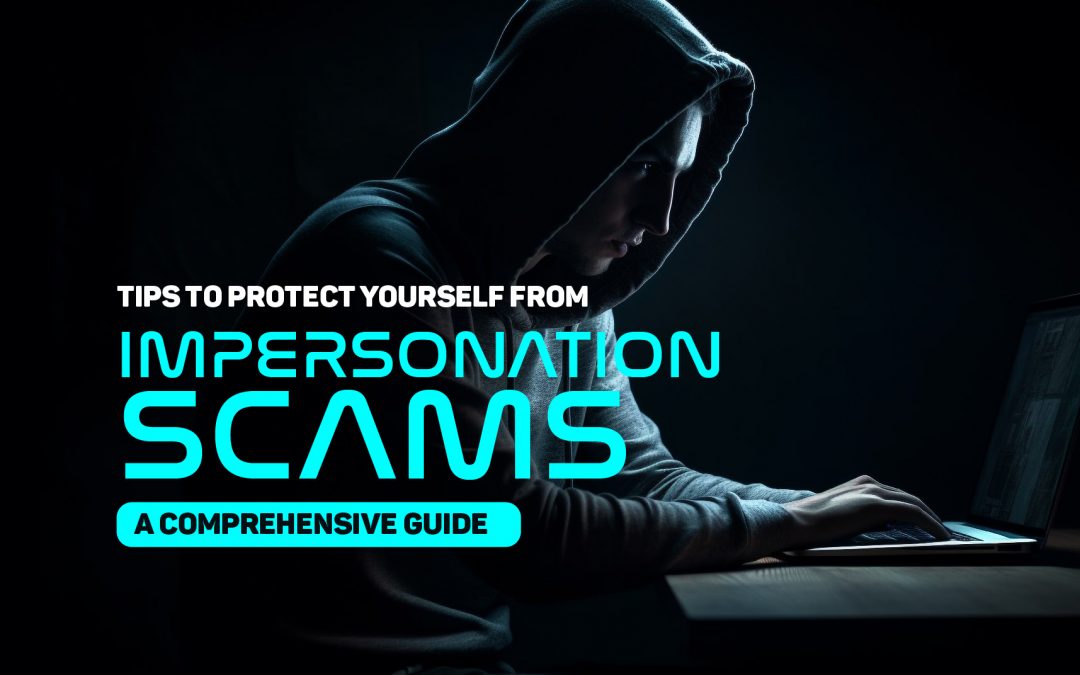Impersonation scams have become increasingly common in recent years, and they can have devastating consequences for victims. These scams involve individuals posing as someone else, such as a government official or a representative from a financial institution, in order to trick people into giving them money or sensitive information. Unfortunately, these scams can be difficult to spot, which is why it’s important to take steps to protect yourself.
One of the most important things you can do to protect yourself from impersonation scams is to be vigilant. This means being aware of the different types of scams that are out there and being cautious when you receive unsolicited phone calls, emails, or text messages. If you’re not sure whether a message or call is legitimate, it’s always better to err on the side of caution and not provide any information until you can verify the person’s identity.
Another important step you can take is to safeguard your personal information. This includes things like your Social Security number, bank account information, and passwords. Make sure to keep this information secure and never share it with anyone unless you’re absolutely sure that they are who they say they are. By taking these steps and staying vigilant, you can help protect yourself from the devastating consequences of impersonation scams.
- Recognizing Common Tactics
- Verifying Identities
- Protecting Personal Information
- Using Technology to Your Advantage
- Responding to Suspected Scams
- Staying Updated on Scam Trends
Recognizing Common Tactics
Impersonation scams can be difficult to detect, but recognizing common tactics can help protect against them. Here are some warning signs to watch for:
- Urgency: Scammers frequently induce urgency to coerce individuals into hasty decisions. They may claim that immediate action is necessary to avoid negative consequences.
- Threats: Scammers may use threats to intimidate victims into providing personal information or sending money. They may claim that legal action will be taken or that the victim’s identity will be stolen.
- Familiarity: Scammers may try to create a sense of familiarity by pretending to be someone the victim knows or trusts, such as a government official, a bank representative, or a family member.
- Requests for personal information: Scammers may ask for personal information such as social security numbers, bank account numbers, or passwords. Legitimate organizations typically do not request this information over the phone or through email.
- Unsolicited offers: Scammers may offer unsolicited services or products, such as investment opportunities or free trials. These offers may be too good to be true and often require payment or personal information.
By being aware of these common tactics, individuals can better protect themselves from impersonation scams.
Verifying Identities
Verifying identities is an essential step in protecting oneself from impersonation scams. One way to do this is to ask for a valid form of identification, such as a passport or driver’s license. It is important to ensure that the identification is legitimate and not forged.
Another way to verify identities is to ask for personal information that only the real person would know, such as their mother’s maiden name or their first pet’s name. However, be cautious when asking for personal information as it can be used for identity theft if it falls into the wrong hands.
It is also recommended to use secure communication channels when verifying identities, such as encrypted messaging apps or secure email services. This can prevent scammers from intercepting sensitive information.
Overall, verifying identities is a crucial step in protecting oneself from impersonation scams. By taking the necessary precautions and being vigilant, individuals can better safeguard themselves from identity theft and financial fraud.
Protecting Personal Information
Protecting personal information is one of the most important steps to prevent impersonation scams. Scammers often use personal information to trick people into giving away sensitive information or money. Here are some tips to protect personal information:
- Use strong passwords: Create strong passwords that are difficult to guess. Incorporate a blend of letters, numbers, and symbols to bolster password security. Avoid using personal information such as your name, birth date, or address.
- Don’t share personal information online: Avoid sharing personal information such as your social security number, bank account information, or credit card details online. Be wary of phishing scams that ask for personal information through email or social media.
- Secure your devices: Keep your devices secure with antivirus software and firewalls. Avoid connecting to public Wi-Fi networks, as they can be easily hacked.
- Monitor your accounts: Routinely monitor bank and credit card accounts to detect any irregular transactions. Report any unauthorized transactions immediately.
- Shred sensitive documents: Shred any sensitive documents such as bank statements, credit card statements, and medical records before disposing of them.
By following these tips, individuals can protect their personal information and reduce the risk of falling victim to impersonation scams.
Using Technology to Your Advantage
In today’s digital age, technology has become an integral part of our lives. It has made our lives easier, but it has also made us vulnerable to impersonation scams. However, technology can also be used to protect ourselves from these scams.
One way to protect yourself is to use two-factor authentication (2FA) whenever possible. Implementing Two-Factor Authentication (2FA) heightens account security by necessitating an additional verification step, such as a code dispatched to your phone or email, beyond just a password. This can prevent scammers from accessing your accounts even if they have your password.
Another way to protect yourself is to use anti-virus and anti-malware software on your devices. These programs can detect and remove malicious software that scammers may use to gain access to your personal information.
Exercise caution when accessing public Wi-Fi networks to mitigate potential security risks. Scammers can easily intercept information transmitted over these networks, so it’s best to avoid accessing sensitive information, such as banking or email accounts, when using public Wi-Fi. Consider utilizing a Virtual Private Network (VPN) when using public Wi-Fi to encrypt internet traffic and thwart unauthorized access.
Lastly, be wary of unsolicited emails or messages that ask for personal information or money. Scammers often use phishing emails or messages to impersonate legitimate organizations and trick people into giving up their personal information. Always verify the authenticity of the message and sender before responding or clicking on any links.
By using technology to your advantage and taking necessary precautions, you can protect yourself from impersonation scams and keep your personal information safe.
Responding to Suspected Scams
When you suspect that you are being targeted by an impersonation scam, it is important to take immediate action to protect yourself. Here are some tips on how to respond to suspected scams:
- Do not engage with the scammer: If you receive an unsolicited call, email, or text message that seems suspicious, do not respond. Scammers often use social engineering tactics to gain your trust and extract personal information from you. If you engage with them, you may inadvertently give them access to your sensitive information.
- Verify the legitimacy of the request: If you receive a request for personal information, money, or access to your accounts, verify the legitimacy of the request before responding. Contact the organization or individual directly using a trusted phone number or email address to confirm that they are who they claim to be.
- Do not click on links or download attachments: Scammers often use phishing emails or text messages to trick you into clicking on a link or downloading an attachment that contains malware. If you receive an unsolicited message with a link or attachment, do not click on it. Instead, delete the message immediately.
- Report the scam: If you believe that you have been targeted by a scammer, report the incident to the appropriate authorities. Reporting scams to the Federal Trade Commission (FTC) via ftc.gov/complaint aids in preventing others from falling victim to similar schemes.
By following these tips, you can help protect yourself from impersonation scams and avoid becoming a victim of fraud. Always prioritize caution and verify the authenticity of requests before providing any information.
Staying Updated on Scam Trends
Staying informed about the latest scam trends is essential to protecting yourself from impersonation scams. Scammers are always changing their tactics, so it’s important to keep up with the latest developments.
One way to stay updated is to follow reputable news sources that report on scams and fraud. These sources can alert you to new scams and provide tips on how to avoid them.
Another way to stay informed is to sign up for scam alerts from organizations such as the Federal Trade Commission (FTC) or the Better Business Bureau (BBB). These alerts can provide timely information about new scams and how to protect yourself.
It’s also important to be aware of common tactics used by scammers, such as phishing emails and phone calls. Scammers may pose as a legitimate business or organization and ask for personal information, such as your Social Security number or credit card information. By being aware of these tactics, you can avoid falling victim to their schemes.
In summary, staying updated on scam trends is crucial to protecting yourself from impersonation scams. By following reputable news sources, signing up for scam alerts, and being aware of common tactics used by scammers, you can stay one step ahead of the fraudsters.













